The Knights Templar were a prominent military order that left an indelible mark on medieval history. Emerging during the Crusades, they served as both fearless warriors and guardians of Christian pilgrims. Renowned for their distinctive white mantles adorned with a red cross, the Templars played a crucial role in shaping the nature of warfare and politics during their time. Yet, their legacy extends far beyond the battlefield, as the Templars’ influence can be seen in the architectural marvels they left behind and the enduring myths surrounding their secretive rituals and hidden treasures. Uncovering the full scope of the Templar’s impact is a captivating journey that promises to reveal the complexities of this enigmatic order.
Key Points
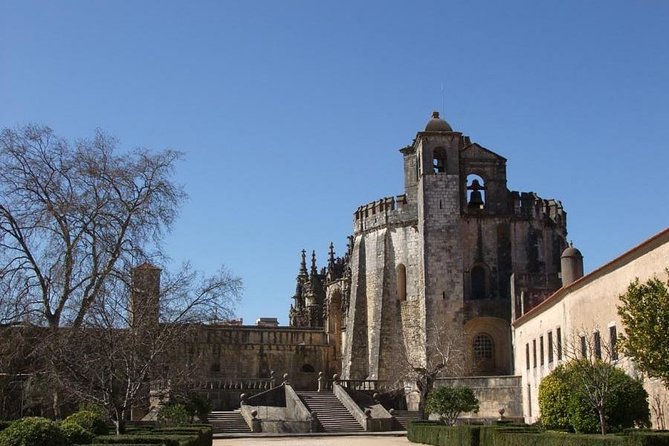
-
The Knights Templar were a renowned Catholic military order that played a pivotal role in the Crusades, known for their military prowess and religious devotion.
-
Lisbon was a crucial stronghold for the Templars, with historical landmarks like the Jerónimos Monastery and Castelo de São Jorge reflecting their architectural and strategic influence.
-
Templar architecture blended Romanesque and Gothic styles, featuring iconic elements like pointed arches and decorative crosses that symbolized their Christian faith and defensive strength.
-
The Templars followed a monastic-like lifestyle, with rituals rooted in Christian mysticism, military discipline, and a belief in the divine right of their crusading cause.
-
The Templar legacy has had a lasting impact on Portuguese culture, visible in landmarks, the prevalence of Templar crosses, and their influence on art, literature, and historical narratives.
Exploring the Templar Legacy
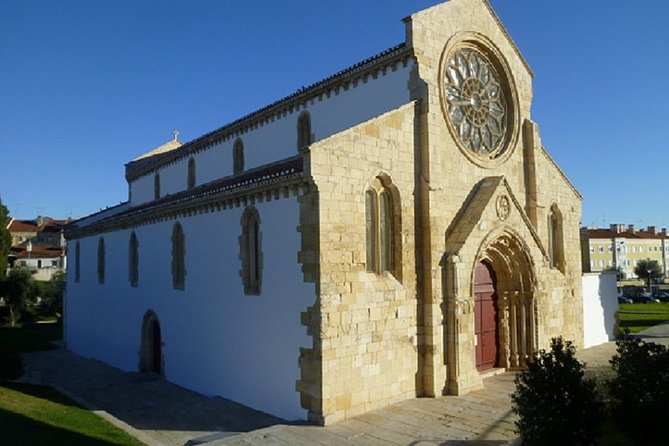
Tracing the captivating legacy of the Knights Templar, this tour takes visitors on a journey through the storied history of the renowned military order.
Participants explore the Templars’ rise to power, their pivotal role in the Crusades, and the enduring mysteries surrounding their downfall.
Along the way, they explore iconic landmarks associated with the knights, uncovering the architectural and symbolic significance that has captivated scholars and enthusiasts alike.
Through interactive exhibits and expert commentary, the tour offers a comprehensive understanding of the Templars’ lasting impact on medieval Europe and their continued influence on art, literature, and popular culture.
You can also read our reviews of more tours and experiences in Lisbon.
Lisbon’s Templar History
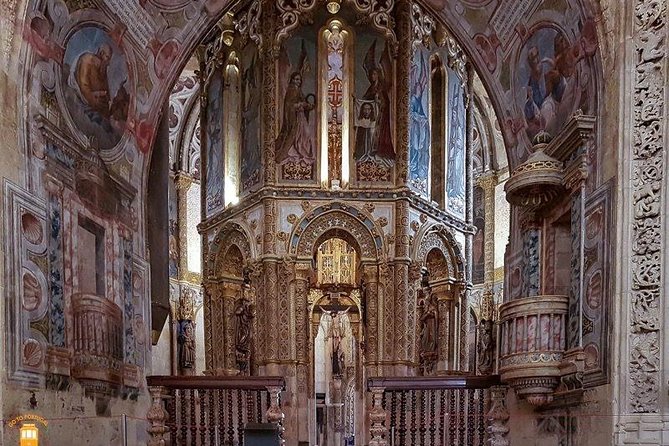
Lisbon proudly boasts a rich Templar legacy, having served as a crucial stronghold for the secretive military order during their heyday.
The city’s historical landmarks bear witness to the Templars’ influence, from the ornate Jerónimos Monastery to the iconic Belém Tower.
Key sites of Templar significance include:
- The Convent of the Order of Christ, a former Templar stronghold that later became the headquarters of the Order’s Portuguese successor.
- The Castelo de São Jorge, where the Templars maintained a strategic presence overlooking the city.
- The Templar Vault, a subterranean chamber rumored to have housed the order’s legendary treasures.
- The Templar Cross, a ubiquitous symbol adorning churches and monuments throughout Lisbon.
Templar Architecture and Symbolism
The Templar Order’s architectural legacy in Lisbon is a testament to their commitment to both military prowess and religious devotion. Their churches and fortifications seamlessly blend Romanesque and Gothic styles, reflecting the Order’s dual nature. A prime example is the Church of Santa Maria do Olival, whose ornate facade and intricate stone carvings showcase the Templars’ mastery of construction and design.
| Architectural Feature | Symbolic Meaning |
|---|---|
| Pointed Arches | Aspiration towards the divine |
| Decorative Crosses | Representation of Christian faith |
| Symmetrical Layout | Harmony and balance |
| Sturdy Walls | Defensive strength and resilience |
This architectural language speaks volumes about the Templar ethos, which valued both spirituality and martial might.
Templar Rituals and Beliefs
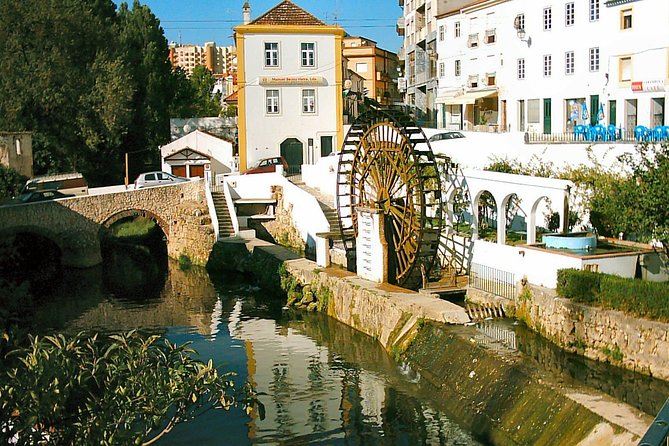
Deeply rooted in Christian mysticism and military discipline, the Templar Order’s rituals and beliefs reflected their unwavering commitment to the divine and their martial prowess.
The Templars followed a strict code of conduct, which included:
- Daily prayer and meditation to strengthen their spiritual devotion.
- Participation in elaborate ceremonies, such as the Initiation Rite, which symbolized their dedication to the Templar ideals.
- Adherence to a monastic-like lifestyle, with vows of chastity, poverty, and obedience.
- Belief in the divine right of their cause, fueling their fervent crusade against the enemies of Christendom.
These practices and beliefs were the foundation of the Templar identity, shaping their actions and defining their legendary status.
The Templar Knights’ Lifestyle
Amidst the rigorous military training and spiritual devotion, the Templar Knights embraced a lifestyle that was both disciplined and austere.
They adhered to a strict code of conduct, living in communal quarters and sharing meals. Vows of poverty, chastity, and obedience were central to their way of life.
Their attire, a white mantle emblazoned with a distinctive red cross, symbolized their commitment to the order.
Off the battlefield, the knights engaged in prayer, study, and charitable works, dedicating themselves to the protection of Christian pilgrims.
This ascetic existence, combined with their martial prowess, earned the Templars a reputation for piety and devotion, making them a formidable force in medieval Europe.
- Lisbon City Center Tour – The Unmissable Lisbon
- Sintra and Cascais Small-Group Day Trip From Lisbon
- Best of Lisbon Small-Group Guided Walking Tour
- True 4Hour/Half Day Tuk Tuk Tour of Lisbon – Local Overview
- Fatima, Nazare and Obidos Small-Group Day Trip From Lisbon
- Lisbon Small-Group Portuguese Food and Wine Tour
Templar Influence on Portuguese Culture
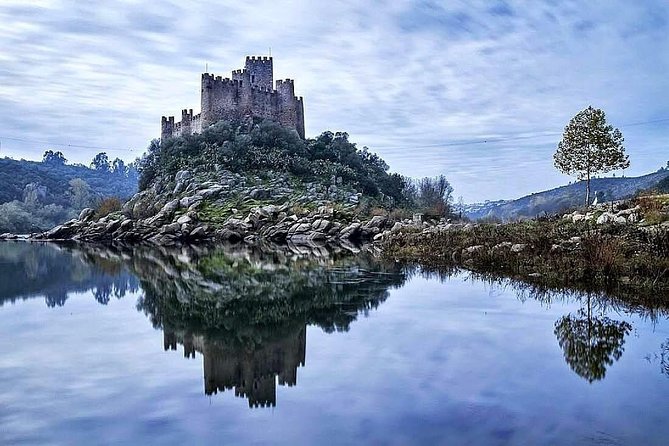
The Templar Knights’ enduring influence on Portuguese culture can be seen in various aspects of the nation’s heritage.
The order’s architectural legacy is evident in iconic landmarks like the Convent of Christ in Tomar, while their religious impact is reflected in the prevalence of Templar crosses throughout the country.
Plus, the Templars’ trade and financial acumen influenced Portugal’s economic development, particularly in the maritime sector.
Perhaps most significantly, the Templars’ heroic narratives have become deeply woven into Portuguese folklore, inspiring generations of artists, writers, and historians.
- Architectural legacy in landmarks like the Convent of Christ in Tomar.
- Religious influence seen in the prevalence of Templar crosses.
- Economic impact on Portugal’s maritime and trade sectors.
- Enduring presence in Portuguese folklore and cultural narratives.
Uncovering Templar Mysteries
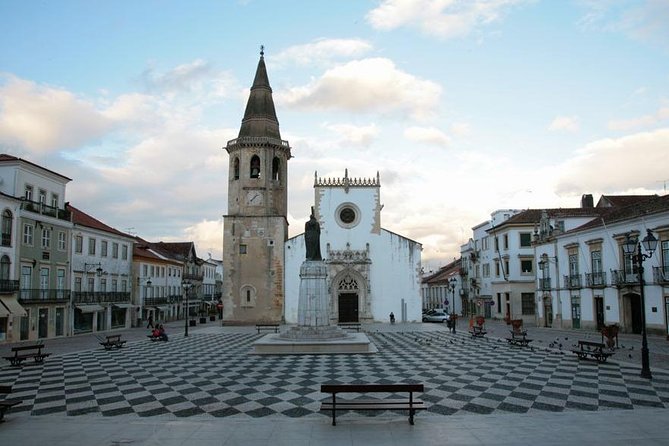
Beyond the Templars’ well-documented influence on Portuguese culture, their shrouded history has long captivated the public’s imagination.
This private tour aims to uncover the mysterious remnants of the Order’s presence in Lisbon. Participants will explore the Templars’ esoteric beliefs, their architectural legacy, and the enduring legends surrounding their secretive activities.
From exploring hidden grottos to deciphering symbolic carvings, the experience promises to shed light on the enigmatic order’s lasting impact on the city.
With an expert guide leading the way, travelers can expect to emerge with a deeper understanding of the Templars’ enduring mystique and their indelible mark on Portugal’s rich heritage.
Highlights of the Templar Tour
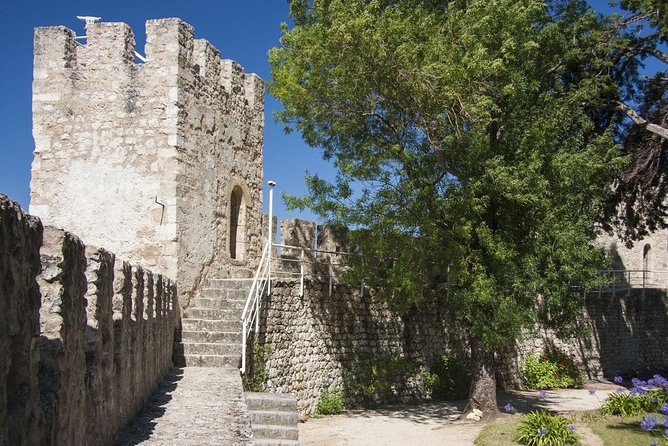
This private Templar tour immerses participants in the enigmatic legacy of the legendary Order. Guests will uncover the mysteries surrounding the Knights Templar as they explore Lisbon’s most significant Templar sites.
Key highlights include:
- Visit the Convent of the Order of Christ, the former headquarters of the Templars in Portugal.
- Discover the Templar-influenced architecture of the Jerónimos Monastery, a UNESCO World Heritage site.
- Explore the Templar crypt at the Igreja de São Roque, where the Order’s members were once laid to rest.
- Savor a traditional Portuguese lunch and dinner, complete with Templar-inspired dishes and local wines.
This immersive tour provides an unparalleled opportunity to uncover the lasting influence of the Knights Templar in Lisbon.
Frequently Asked Questions
Can I Bring My Own Food on the Tour?
According to the tour overview, meals like lunch, dinner, and snacks are already included in the tour price. Bringing your own food is not explicitly prohibited, but it’s not necessary as the tour provides all the necessary food and refreshments.
Is the Tour Suitable for Children?
The tour is not recommended for children, as the marketing materials state it’s "not wheelchair accessible" and "not recommended for pregnant travelers." The tour likely requires a moderate level of physical fitness that may be challenging for young children.
Can I Store My Luggage During the Tour?
Unfortunately, the tour operator does not offer luggage storage during the tour. Participants are advised to arrange for their own luggage storage before or after the tour, as the itinerary does not allow for this service.
What Languages Are the Tour Guides Fluent In?
The tour guides are fluent in several languages, including English, Portuguese, and Spanish. They’re knowledgeable and eager to provide an engaging experience for all participants, ensuring effective communication throughout the tour.
Is There a Dress Code for the Tour?
The tour does not have a strict dress code, but visitors are encouraged to wear comfortable, weather-appropriate clothing and closed-toe shoes. No formal attire is required, as the focus is on exploring the historical sites.
Recap
The Knights Templar’s legacy continues to captivate people worldwide. Their influence on medieval warfare, architecture, and culture is undeniable. Though their order’s dramatic downfall in the 14th century, the Templar’s enduring mystique persists, fueling ongoing fascination with their secretive rituals and treasures. Their story remains an integral part of European history, one that continues to be explored and celebrated to this day.
More Tour Reviews in Lisbon
Not for you? Here's more things to do in Lisbon we have recnetly reviewed
- 8 Best Canoe And Kayak Experiences In Lisbon
- 2 Best Craft Beer Tours And Tastings In Lisbon
- 12 Best 2 Day Tours In Lisbon
- 9 Best 3 Day Tours In Lisbon
- 25 Best Cruises And Boat Tours In Lisbon
- 16 Best Canoe And Kayak Experiences In Lisbon
- 6 Best Christmas Experiences In Lisbon
- 25 Best Dining Experiences In Lisbon
- 20 Best Full-Day Tours In Lisbon
- 11 Best Helicopter Flights And Tours In Lisbon
- 3 Best 4 Day Tours In Lisbon
- 14 Best Massage And Relaxation Services In Lisbon
